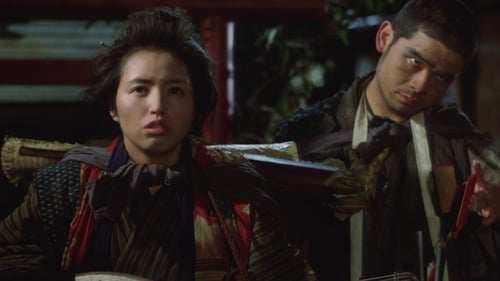
Set Decoration
Shigematsu Shizuma lives with his senile mother, his wife Shigeko, and his niece Yasuko in a village near Fukuyama. He, his wife, his niece and his close friends in the village were present at the atomic bombing of Hiroshima. The Shizumas look for prospective husbands for Yasuko, but find that the families withdraw on finding out she was at Hiroshima.

Set Decoration
Aochi, um professor universitário de alemão, encontra com seu antigo colega Nakasago quando viaja de férias para um vilarejo à beira-mar. Nakasago vive como nômade e é perseguido por um grupo local, acusado de ter seduzido e assassinado a mulher de um pescador. Depois que Aochi resolve a situação do amigo com a polícia, os dois jantam e conversam sobre a vida, acompanhados pela gueixa Koine. Seis meses depois, Aochi volta para visitar o amigo e descobre que ele está casado com Sono, uma mulher incrivelmente parecida com Koine. Repentinamente, Nakasago foge com Koine, abandonando Sono, que está grávida. Mas tudo pode ser sonho, delírio ou realidade. Acompanhando a trama, a peça musical “Zigeunerweisen” (1878), de Pablo de Sarasate, toca com insistência. Primeiro filme da “trilogia de Taisho,” que faz referência ao Japão dos anos 1910-1920, foi vencedor de quatro prêmios da Academia Japonesa em 1981, incluindo os de Melhor Filme e Melhor Diretor.

Assistant Art Director
A freestyle, imagined telling of the life of shaman queen Himiko, who falls in love with her half-brother, making her powers weaken thus putting her position to risk.

Set Decoration
Successful and married with children, paper-mill owner Jihei knows better than to contradict the strict social and moral codes of 18th-century Japan. But when he meets the lovely courtesan Koharu, he becomes a man obsessed. Koharu returns his love, even foregoing other customers while Jihei schemes to somehow buy her freedom. His efforts yield ruinous consequences for his business and his family life, and Koharu is meanwhile purchased by another client.



